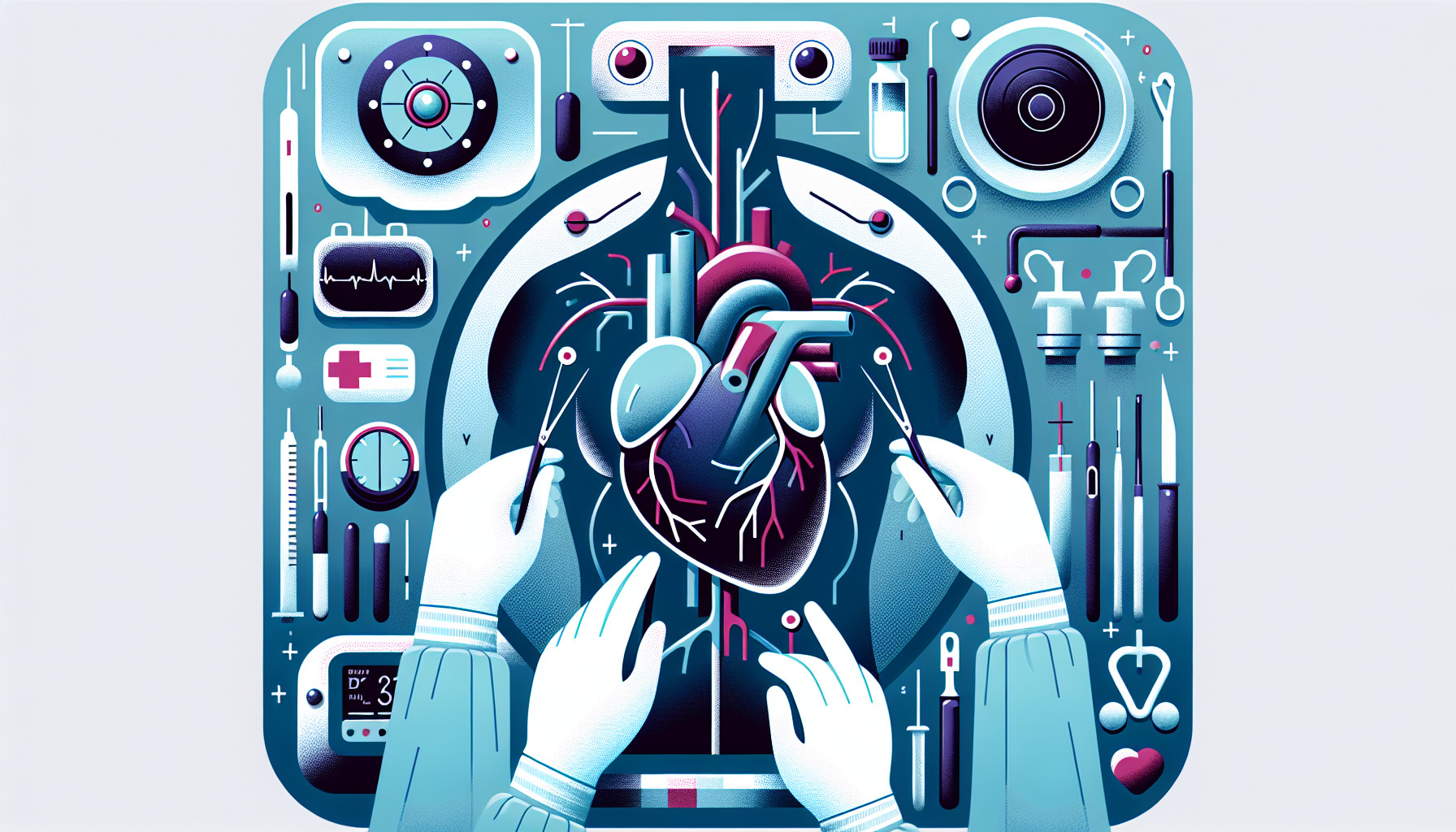Our Summary
This research paper investigates the relationship between coronary artery bypass grafting (a type of heart surgery) and cognitive dysfunction or decline after the surgery. Cognitive dysfunction refers to a decrease in mental abilities such as memory, concentration, and problem-solving skills. The study aims to understand why some patients may experience these cognitive changes after undergoing heart surgery.
FAQs
- What is coronary artery bypass grafting?
- What is postoperative cognitive decline after coronary artery bypass grafting?
- How is cognitive dysfunction related to coronary artery bypass grafting?
Doctor’s Tip
One helpful tip a doctor might tell a patient about coronary artery bypass is to follow a healthy lifestyle post-surgery, including maintaining a balanced diet, regular exercise, not smoking, and managing stress to help prevent future complications and promote overall heart health.
Suitable For
Patients who are typically recommended for coronary artery bypass surgery are those who have severe coronary artery disease that cannot be effectively managed with medication or other interventions. This may include patients with blockages in multiple coronary arteries, severe chest pain (angina) that is not well controlled with medication, or a history of heart attacks or other serious heart conditions.
Other factors that may indicate the need for coronary artery bypass surgery include:
- Severe narrowing or blockage in the left main coronary artery
- Severe narrowing or blockage in multiple coronary arteries
- Left ventricular dysfunction (weakened heart muscle)
- Diabetes with significant coronary artery disease
- Previous unsuccessful interventions such as angioplasty or stenting
- High risk of future heart attack or other serious cardiac events
It is important for patients to undergo a thorough evaluation by a cardiologist or cardiac surgeon to determine if coronary artery bypass surgery is the best treatment option for their specific condition.
Timeline
Before coronary artery bypass surgery:
- Patient undergoes preoperative testing, including blood tests, imaging studies, and possibly a stress test.
- Patient meets with their healthcare team to discuss the procedure, risks, and potential outcomes.
- Patient may be prescribed medications to manage symptoms and reduce the risk of complications.
After coronary artery bypass surgery:
- Patient is closely monitored in the intensive care unit immediately following surgery.
- Patient may experience pain, fatigue, and difficulty breathing in the days following surgery.
- Patient participates in cardiac rehabilitation to help regain strength and improve cardiovascular health.
- Patient may experience improvements in symptoms such as chest pain and shortness of breath.
- Patient undergoes follow-up appointments with their healthcare team to monitor progress and adjust treatment as needed.
What to Ask Your Doctor
- What is the purpose of the coronary artery bypass surgery?
- What are the risks and potential complications associated with the surgery?
- How long is the recovery process and what can I expect during this time?
- Will I need to make any lifestyle changes after the surgery?
- What medications will I need to take after the surgery and for how long?
- How often will I need follow-up appointments and monitoring?
- Are there any specific exercises or physical therapy I should do post-surgery?
- What signs or symptoms should I watch out for that may indicate a complication or problem?
- How long will the benefits of the surgery last?
- Are there any alternative treatment options that I should consider?
Reference
Authors: Bhamidipati D, Goldhammer JE, Sperling MR, Torjman MC, McCarey MM, Whellan DJ. Journal: J Cardiothorac Vasc Anesth. 2017 Apr;31(2):707-718. doi: 10.1053/j.jvca.2016.09.028. Epub 2016 Sep 28. PMID: 28094177
